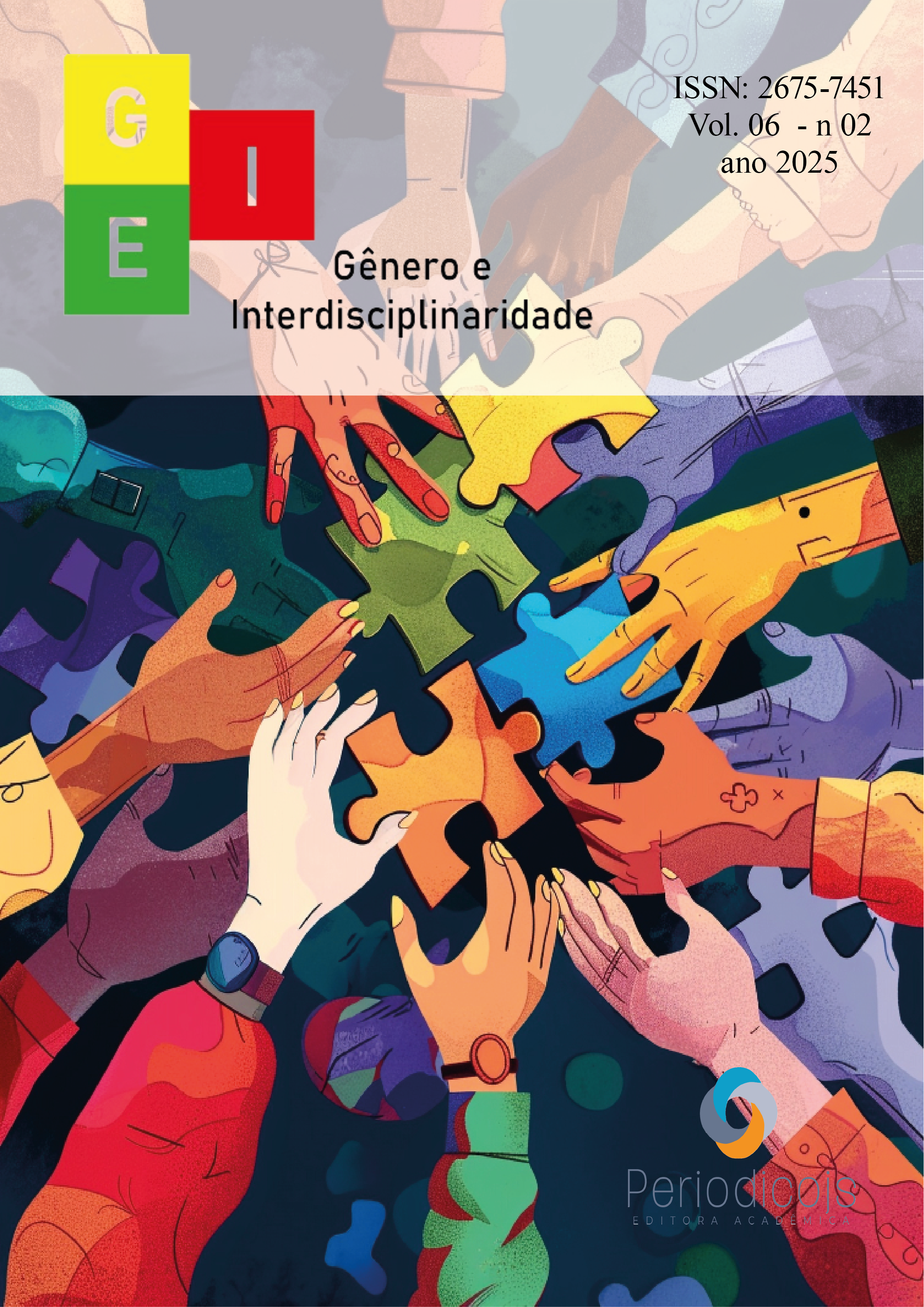Resumo
This paper presents the impact of artificial intelligence (AI) in developing countries, particularly in the African context, identifying the challenges and opportunities that this technology offers. AI emerges as a potential tool to transform various sectors, including health, education, and agriculture, in countries like Angola. Although the current context presents many opportunities, it also faces significant challenges, such as insufficient infrastructure, the need for capacity building, and lack of regulation. The research aims to understand the impact of AI in critical sectors and evaluate the conditions for its effective adoption. The methodology used involves a systematic bibliographic review of programs, articles, books and reports, with a focus on recent publications. This study uses a qualitative research based on interpretative analysis of data obtained from various sources, including websites, libraries, and national organizations, allowing for the articulation of existing studies on the topic and understanding the reality of AI in developing countries. Overall, the negative impacts may include dependence on technological companies and infrastructure from developed countries, inequality in access to technologies, and ethical and regulatory challenges. Among the study’s limitations are the lack of specific data on AI implementation in Angola and inequality in access to technology between urban and rural areas.
Referências
ANDERSON, J.; LUCHSINGER, A. Artificial intelligence and the future of humans. Pew Research Center, v. 10, n. 12, 2018.
ANGOTIC. Relatório sobre o acesso à internet em Angola: Crescimento significativo entre 2021 e 2023. 2024. Disponível em: https://www.forbesafricalusofona.com. Acesso em: 5 nov. 2024.
ARAKPOGUN, E. O.; ELSAHN, Z.; OLAN, F.; ELSAHN, F. Inteligência Artificial na África: desafios e oportunidades. In: HAMDAN, A.; HASSANIEN, A. E.; RAZZAQUE, A.; ALAREENI, B. (Org.). A Quarta Revolução Industrial: Implementação da Inteligência Artificial para o Crescimento do Sucesso Empresarial. Cham: Springer, 2021. v. 935. Disponível em: https://doi.org/10.1007/978-3-030-62796-6_22. Acesso em: 15 nov. 2024.
BANCO MUNDIAL. Relatórios. 2021. Disponível em: https://www.documents.worldbank. Acesso em: 11 nov. 2024.
BANCO NACIONAL DE ANGOLA. Relatório sobre inovação tecnológica no setor financeiro angolano. 2021.
BARBANTE, C. J. S. Projetos de inclusão digital na educação em Angola: avanços e recuos. Revista Brasileira de Estudos Africanos, v. 6, n. 11, 2021. Disponível em: < >. Acesso em: 13 nov. 2024.
BRASIL. Plano Nacional de Transformação Digital do Brasil. Lei n.º 9.319, de 2018. Brasília: Presidência da República, 2018. Disponível em: http://www.planalto.gov.br/ccivil_03/_Ato2015-2018/2018/Decreto/D9319.htm. Acesso em: 24 out. 2024.
BROWN, T. B. et al. Os modelos de linguagem são aprendizes de poucas tentativas. Avanços em Sistemas de Processamento de Informações Neurais, v. 33, 2020. Disponível em: https://doi.org/10.4855/arXiv.2005. Acesso em: 12 out. 2024.
BRYNJOLFSSON, E.; MCAFEE, A. Machine, platform, crowd: harnessing our digital future. New York: W. W. Norton & Company, 2017.
CARVALHO, A. C. P. L. F. Inteligência artificial: riscos, benefícios e uso responsável. Revista USP, 2021. Disponível em: https://www.revista.usp.br/eav/article/view/185020. Acesso em: 20 out. 2024.
COSTA, T. J. A. A ascensão da inteligência artificial. Jornal de Angola, 2024. Disponível em: https://www.jornaldeangola.ao/ao/noticias/a-ascensao-da-inteligencia-artificial/. Acesso em: 19 out. 2024.
CRAIG, J. J. Introduction to robotics: mechanics and control. 3. ed. New Jersey: Pearson Education, 2005.
DRANKA, G. G.; FERREIRA, P. Towards a smart grid power system in Brazil: challenges and opportunities. Energy Policy, v. 136, p. 111033, 2020. Disponível em: https://doi.org/10.1016/j.enpol.2019.111033. Acesso em: 19 out. 2024.
FREY, C. B.; OSBORNE, M. A. O futuro do emprego: quão suscetíveis são os empregos à informatização? Previsão Tecnológica e Mudança Social, v. 114, 2017. Disponível em: https://doi.org/10.1016/j.t.2016.08.019. Acesso em: 14 nov. 2024.
FURTADO, R. Desigualdade digital: acesso à internet em Angola. Revista de Estudos Africanos, v. 15, n. 3, p. 45-62, 2020.
GABBIADINI, A.; DURANTE, F.; BALDISSARRI, C.; ANDRIGHETTO, L. Inteligência artificial aos olhos da sociedade: avaliando risco social e percepção de valor social em uma nova classificação. Comportamento Humano e Tecnologias Emergentes, v. 7008056, 2024. Disponível em: https://doi.org/10.1155/2024/7008056. Acesso em: 13 nov. 2024.
GIORDANO, V.; SPADA, I.; CHIARELLO, F.; FANTONI, G. O impacto do ChatGPT nas habilidades humanas: um estudo quantitativo sobre dados do Twitter. Revista de Estudos em Inteligência Artificial, v. 12, n. 4, p. 123-145, 2023. Disponível em: https://doi.org/10.1016/j.techfore.2024.123389. Acesso em: 11 nov. 2024.
HEEKS, R. Information and communication technology for development (ICT4D). 2018.
INSTITUTO NACIONAL DE ESTATÍSTICA. Projeção da população: 2014-2050.
LEE, K. F. AI superpowers: China, Silicon Valley, and the world order. 2018.
MCCARTHY, J. O Projeto de Pesquisa de Verão de Dartmouth sobre Inteligência Artificial. 1956. Disponível em: https://www.c.dartm.edu/faculdade/. Acesso em: 29 out. 2024.
MIAO, F. C.; SHIOKIRA, K. AI competence framework for students. Revista de Competências e Tecnologia, v. 15, n. 3, p. 234-250, 2024. Disponível em: https://doi.org/10.54675. Acesso em: 11 nov. 2024.
PENTEADO, C.; PELLEGRINI, J.; SILVEIRA, S. A. da (Org.). Plataformização, inteligência artificial e soberania de dados: tecnologia no Brasil 2020-2030. São Paulo: Ação Educativa, 2023. Disponível em: https://acaoeducativa.org.br/wp. Acesso em: 15 nov. 2024.
PROGRAMA DE DESENVOLVIMENTO DAS NAÇÕES UNIDAS. Inteligência artificial (AI) é uma solução para Angola. 2024. Disponível em: https://www.undp.org/pt/angola/blog/inteligencia-artficial-ai-e-uma-solucao-para-angola. Acesso em: 28 set. 2024.
SCHWAB, K. A quarta revolução industrial. Moeda, 2017. Disponível em: https://senado.leg.br/sdleggetter/documento?dm=9347622&ts=1701182930272&disposition=inline. Acesso em: 19 out. 2024.
SMITH, J.; JOHNSON, R. Artificial intelligence in automated societies. New York: TechPress, 2022.
SMITH, J.; NEUPANE, S. Artificial intelligence and human development: toward a research agenda. 2018.
SOUSA, J. B. M. Impacto das tecnologias de informação e comunicação no Instituto Superior de Ciências da Educação do Huambo, Angola. REFCalE: Revista Electrónica Formación y Calidad Educativa, v. 4, n. 3, p. 71-76, 2017. Disponível em: https://refcale.uleam.edu.ec/index.php/refcale/article/view/1140. Acesso em: 10 nov. 2024.
ZUBOFF, S. The age of surveillance capitalism: the fight for a human future at the new frontier of power. Profile Books, 2019.





